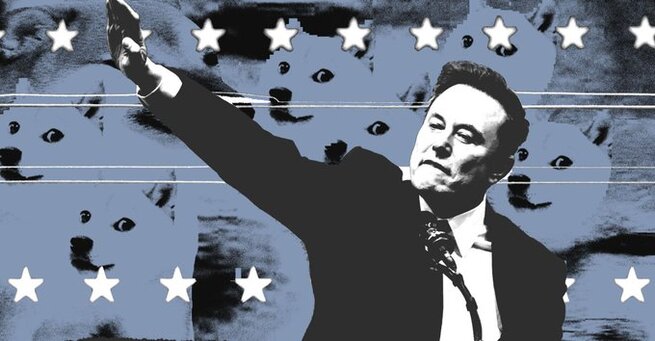
Why Is the U.S. Pressuring African Nations to Approve Starlink?
Many people searching for information about Starlink in Africa want to know why Elon Musk’s satellite internet company is becoming a diplomatic flashpoint—and whether it’s ethical for U.S. foreign aid to be linked with Starlink’s expansion. Recent reports reveal that the U.S. State Department has actively pressured several African countries, including Gambia, Cameroon, Djibouti, and Lesotho, to fast-track regulatory approvals for Starlink. These efforts, aimed at curbing China’s technological influence, raise serious questions about digital sovereignty, aid diplomacy, and the growing influence of Musk-led enterprises on U.S. foreign policy.
Elon Musk’s Starlink Becomes a Strategic Tool in U.S. Foreign Policy
According to a detailed investigation by ProPublica, U.S. diplomats are using foreign aid packages—some worth up to $25 million—as leverage to convince developing African nations to approve Starlink’s satellite internet services. Cables reviewed from U.S. embassies show coordinated efforts between diplomats and Starlink executives, with diplomatic language emphasizing that approving Starlink would be a “sign of friendship” with the United States. The implication is clear: fast-track Starlink’s approval, or risk losing key development funds.
Foreign Aid or Subtle Threat? Gambia’s $25 Million Dilemma
One of the most telling incidents occurred shortly after Donald Trump’s inauguration. Sharon Cromer, the U.S. ambassador to Gambia, reportedly met with Lamin Jabbi, head of Gambia’s communications ministry, to push Starlink's regulatory process. During that meeting, she referenced a $25 million project to improve Gambia’s electrical grid—implying it might be withheld if cooperation wasn't forthcoming. Though never explicitly stated, top Gambian officials saw the message as a veiled threat. "The implication was that they were connected," said Hassan Jallow, Jabbi’s deputy.
Why the U.S. Is Prioritizing Starlink in Africa
The push for Starlink is not just about connectivity—it’s a geopolitical chess move. By ensuring Starlink dominates internet infrastructure in emerging markets, U.S. policymakers hope to counter China’s growing digital influence in Africa. China has been investing heavily in telecom networks through companies like Huawei. By promoting Starlink, the U.S. is asserting digital dominance under the guise of development aid. This makes the satellite internet initiative part of a broader foreign policy strategy that mixes tech ambition with global influence.
Is There a Conflict of Interest Between Starlink and U.S. Diplomacy?
Critics argue that these State Department efforts blur the line between private enterprise and public diplomacy. With Elon Musk’s Department of Government Efficiency (DOGE) overseeing sweeping budget cuts, foreign officials are reportedly afraid to resist U.S. demands. DOGE, a powerful new government entity tied closely to Musk’s interests, is seen as a threat to programs that rely heavily on U.S. funding. This overlap between public authority and private gain has ignited concerns over transparency, ethical governance, and long-term impact on diplomatic relations.
What’s Next for African Countries Facing This Pressure?
So far, not all nations have complied. Gambia's resistance has been particularly firm. Even after a series of follow-up meetings in Washington D.C., Gambia’s communications ministry held its ground, refusing to greenlight Starlink’s license. Yet the U.S. campaign didn’t stop. Within hours, both Starlink and U.S. diplomats increased pressure, further revealing how deeply intertwined their agendas have become. Whether this results in eventual approval—or lasting diplomatic damage—remains to be seen.
Starlink, Aid, and the Future of African Internet Access
Starlink promises low-latency, high-speed internet to underserved regions, which could be transformative for countries with limited connectivity. But the method of implementation matters. Development experts warn that pushing foreign governments into rushed deals could lead to regulatory gaps, increased dependency, and loss of digital sovereignty. As Africa’s tech infrastructure grows, the question isn’t just who builds it—but how it’s being built and at what cost.
𝗦𝗲𝗺𝗮𝘀𝗼𝗰𝗶𝗮𝗹 𝗶𝘀 𝘄𝗵𝗲𝗿𝗲 𝗿𝗲𝗮𝗹 𝗽𝗲𝗼𝗽𝗹𝗲 𝗰𝗼𝗻𝗻𝗲𝗰𝘁, 𝗴𝗿𝗼𝘄, 𝗮𝗻𝗱 𝗯𝗲𝗹𝗼𝗻𝗴. We’re more than just a social platform — from jobs and blogs to events and daily chats, we bring people and ideas together in one simple, meaningful space.